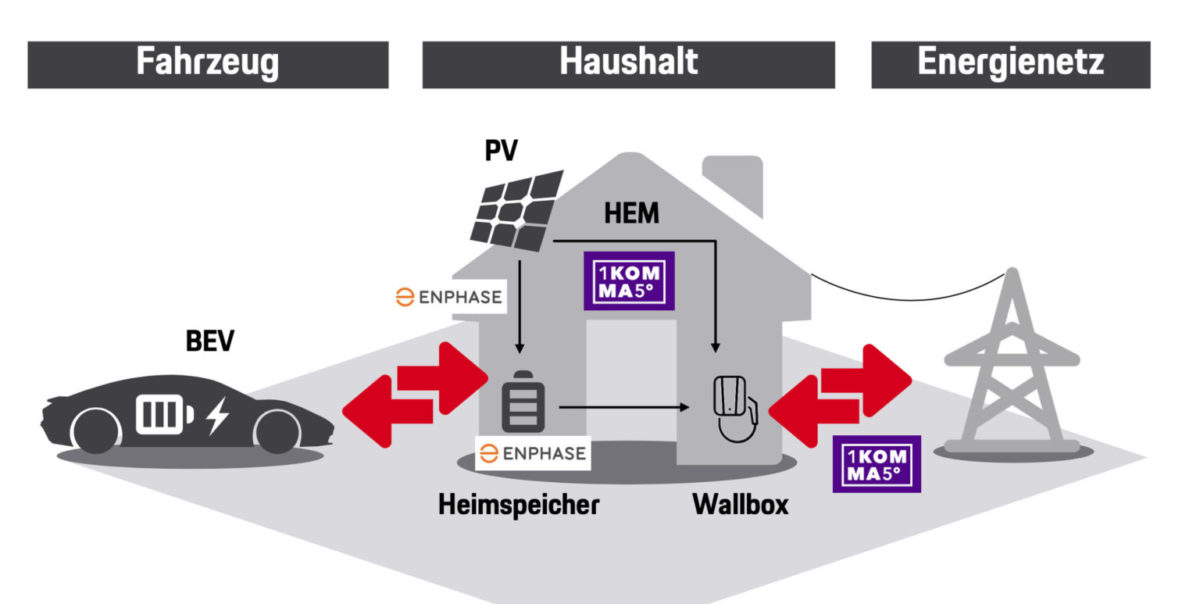From pv magazine Germany
German aggregator 1Komma5° and US-based micro-inverter manufacturer Enphase Energy announced a strategic partnership for the German and European markets on Wednesday.
The long-term partnership is intended at developing internet of things (IOT) applications, explained 1Komma5° founder, Philipp Schröder, and at building a virtual power plant that should enable consumers to benefit from the volatility of the electricity market through the utilization of charging electric vehicles or storage systems in times of low electricity prices.
“We want to enable our customers to generate additional income through our energy IOT project this year,” Schröder told pv magazine. “We expressly invite other manufacturers to follow this example so that end customers can finally benefit from the full value of smart networked systems and the pooling of flexible loads,” Schröder continued.
1Komma5° has set itself the goal of equipping 1.5 million buildings in Europe with photovoltaics, storage systems, recharging solutions for electric vehicles, and heat pumps by 2030 – a plan that may need a total investment of around €30 billion. The German start-up usually invests in local installation companies in order to accelerate their growth and has, now, offices at 13 locations in Germany and Sweden.
“Our goal is to work with the best regional players to bring Enphase technology to as many customers in Europe as possible,” said Enphase CEO Badri Kothandaraman. “By providing granular access to a homeowner's clean energy assets, such as photovoltaics, battery, EV charging station, and heat pump systems, we can enable 1Komma5° to offer additional energy services.”
Enphase said its “IQ Gateway” technology will be crucial to allow 1Komma5° to integrate intelligent energy tariff structures into its products in order to optimize electricity prices for customers, added Jannik Schall, chief product officer at the German company. The plans of 1Komma5° also provide for further partnerships for all areas including heat pumps, energy storage, charging stations, and solar modules. “Above all, we see the integration of energy IOT and access to interfaces in the foreground but of course also securing energy supply and competitive prices,” explained Schröder.
This content is protected by copyright and may not be reused. If you want to cooperate with us and would like to reuse some of our content, please contact: editors@pv-magazine.com.




By submitting this form you agree to pv magazine using your data for the purposes of publishing your comment.
Your personal data will only be disclosed or otherwise transmitted to third parties for the purposes of spam filtering or if this is necessary for technical maintenance of the website. Any other transfer to third parties will not take place unless this is justified on the basis of applicable data protection regulations or if pv magazine is legally obliged to do so.
You may revoke this consent at any time with effect for the future, in which case your personal data will be deleted immediately. Otherwise, your data will be deleted if pv magazine has processed your request or the purpose of data storage is fulfilled.
Further information on data privacy can be found in our Data Protection Policy.